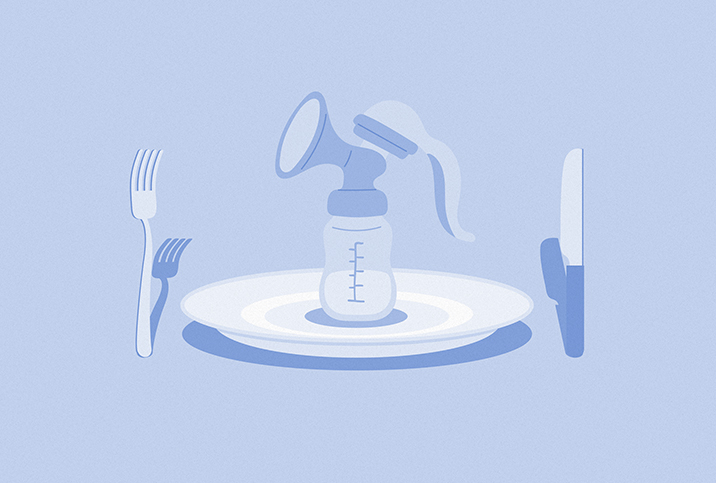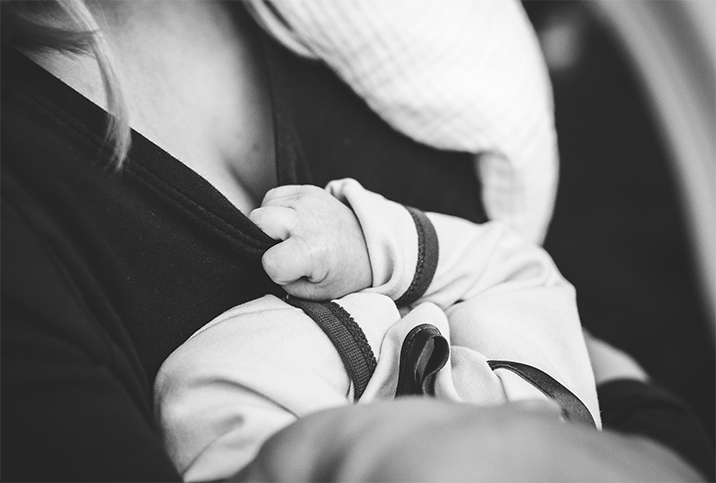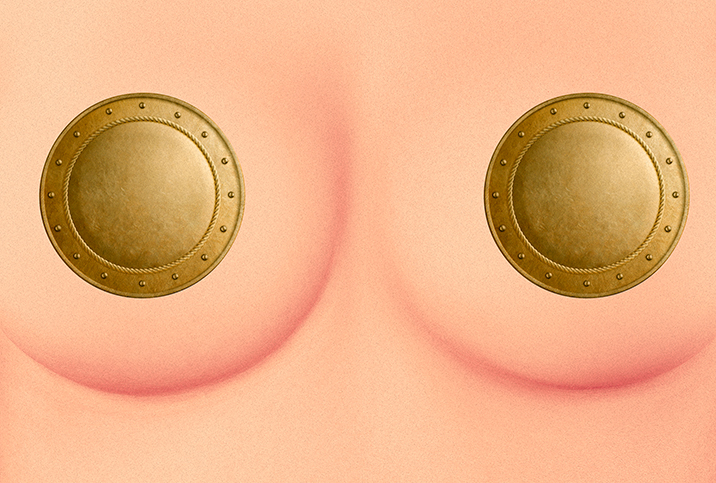Breastfeeding Is Not a Magic Diet

I heard it all the time when I was pregnant: Breastfeeding makes you lose weight; the pounds just melt away; did you know breastfeeding burns 500 calories a day? And so on.
The idea that breastfeeding is a magical remedy for losing pregnancy weight is pervasive—so pervasive that many people could become frustrated or feel like a failure if they breastfeed and don't quickly return to their prepregnancy weight. But breastfeeding is just one factor of many that can influence postpartum weight loss, and the recommended rate of losing weight while breastfeeding is gradual: a half-pound to 1 pound a week.
People who want to lose weight while breastfeeding may turn to diets, but cutting calories while breastfeeding generally isn't recommended. In fact, a person who is breastfeeding needs to increase their calories and nutrients compared with their prepregnancy diet—even if they are trying to lose weight.
Why cutting calories is harmful
"Cutting calories is never the preferred route to achieving fat loss and it certainly isn't appropriate while breastfeeding," said Lizzy Swick, R.D.N., a registered dietitian in Montclair, New Jersey. "If a woman wants to set herself up for a healthy and sustainable fat loss postpartum, she will be shocked to hear that eating more calories from real, whole foods is the way to go."
The common wisdom that breastfeeding burns 500 calories a day comes from calculating how many calories are found in the volume of breastmilk from the average breastfeeding person per day. To keep up with this task, the body requires more energy, which means more calories.
"It's typically recommended to allow about 300 extra calories for lactation, knowing that if you're exclusively breastfeeding, you're putting out about 500, and then that 200 deficit would enable you to have a slow, steady weight loss," said Laurie Nommsen-Rivers, Ph.D., a registered dietitian, lactation consultant, associate professor and the Ruth Rosevear endowed chair of maternal and child nutrition at the University of Cincinnati.
If a person returns to their prepregnancy diet without adding calories, they actually would be living with a deficit of around 500 calories from what they are putting out, which may be too severe. If a person then restricts calories further, the deficit grows even larger.
Too severe of a diet can hurt the health of the person breastfeeding and lead to nutrient deficiency, fatigue and, eventually, issues such as inflammation and chronic disease, Swick said.
What the research says
Restricting calories won't change the volume or composition of breastmilk that a person produces, even with a severe diet of roughly 35 percent fewer calories, according to a 1999 study on lactation and dieting co-authored by Nommsen-Rivers and published in the American Journal of Clinical Nutrition.
However, the diet used in the study, which lasted 11 days, is not one that's recommended in real life, Nommsen-Rivers explained.
"We intentionally had a severe energy deficit because we were looking worst-case scenario what's going to happen with milk production," she said. "But we would not recommend that women adopt a diet that severe because it's not sustainable and it's not pleasant."
In the study, researchers provided the participants with meals to make sure they retained the nutrients they needed. They also provided babysitting and exercise equipment.
"This was looking at an extreme situation, and we knew it was extreme, so we set them up to be successful for these 11 days," Nommsen-Rivers said.
The study's diet group, which only cut calories and didn't exercise, took in about 1,600 calories on the lowest end of the range.
The lesson from studies like this shouldn't be that 1,600 calories is the minimum a woman can eat without hurting their milk supply, because the study was not meant to reflect regular, everyday life.
"Yes, you can lose weight, but certainly you don't want to have a starvation diet or a diet that's inadequate in good nutrition," Nommsen-Rivers said.
Although this study and others say milk supply isn't affected by cutting calories, some women still experience a dip in supply if they make a sudden, drastic change in their diet, such as when dealing with a bout of stomach flu.
"Anecdotally, there are a number of women who if they start a diet, they start cutting carbohydrates, for example, or just make a significant change to their eating intake that their body reacts [to] and they notice a dip in supply," said Alexandra Paetow, M.S., R.D., a registered dietitian in Maplewood, New Jersey.
Understanding your unique needs
Dietary needs and activity levels in postpartum life are so individually based that general recommendations won't apply to every person. Increased calories and nutrition are needed for the body to heal after labor, Paetow explained. For people recovering from severe tearing or cesarean sections, healing could take longer or they could need more calories.
Activity levels after childbirth also vary greatly depending on the person and their circumstances, for example, if they are chasing after other kids or unable to get out and about because they are healing.
Breastfeeding is just one factor in the gradual postpartum weight loss. Losing weight at a rate of a half-pound a week means it could take many, many months for a person to get back to their prepregnancy weight—if they ever do.
For many people, breastfeeding aids weight loss, while for others, it won't. The idea that breastfeeding makes pounds "melt away" can be harmful and unrealistic for some people, especially as their appetite increases beyond what they may have been expecting.
"It feels like that mismatch of 'I'm supposed to be eating less now, and my body is screaming at me to eat more and so what am I doing wrong?'" Paetow said. "It definitely takes a toll."


















